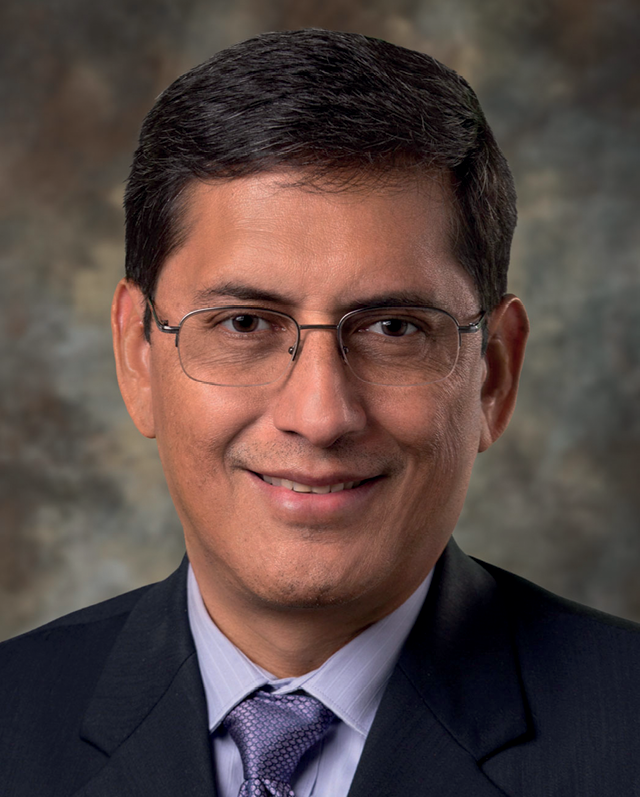Preface – ESMO Solid Tumors 2022

© privat – Jaime R. Merchan, MD. MMSc, University of Miami Miller School of Medicine, Sylvester Comprehensive Cancer Center, Miami, USA
Dear Colleagues,
At the ESMO congress held in Paris, France, and virtually from 9th – 13th September 2022, practice-changing data and high-quality education attracted more than 29,300 participants from over 150 countries. The 1,912 abstracts reported at the conference included 76 late-breaking abstracts; among them, 11 abstracts were selected for presidential symposia to discuss the very latest advances in the treatment of different solid tumor entities, including therapeutic innovations, translational research, patient advocacy, public policy, and many more, whilst offering a wealth of opportunities for exchange of ideas among delegates.
Thus, this issue of memo inOncology on solid tumors highlights new clinical insights in head and neck squamous cell carcinoma with new treatment strategies, including e.g. a 5-FU-free chemotherapy combination with pembrolizumab to overcome toxicities, as well as several longtime follow-up study data.
Moreover, multiple clinically relevant trials addressing open questions regarding first- or second-line mono- or combination therapies to further improve response and survival rates in patients with advanced hepatocellular carcinoma are summarized.
Additionally, at this year’s meeting, a range of new practice-changing treatment strategies for all stages of gastric cancer and gastroesophageal junction adenocarcinoma were presented; these highlight the importance of selecting patients who are most likely to benefit from a specific therapy, biomarkers to predict response to treatment, prognostic stratification, as well as health-related quality of life.
In RCC, although several phase 3 trials – in the adjuvant and metastatic setting – did not meet their primary endpoints, novel three and two drug combinations showed encouraging clinical activity. The COSMIC-313 study demonstrated the efficacy and safety of a TKI plus two standard-of-care ICIs in previously untreated patients with advanced RCC. For treatment naïve, as well as for previously immunotherapy-treated patients, a new doublet combining an HIF-2α and a VEGF inhibitor showed promising antitumor activity, too.
At ESMO, the importance of genomic profiling to detect somatic variants, and thus identifying treatments specifically tailored to the molecular and pathological characteristics of colorectal cancer, was in the focus of several presentations where new therapeutic approaches showed their potential of becoming new standards-of-care.
Finally, this report focuses on novel early clinical approaches in solid tumors, including CLDN6 CAR-T cell therapy, a GDF-15 neutralizing antibody, an MDM2 inhibitor, an antibody-drug conjugate, or even a new class of T-cell-redirecting bispecific fusion proteins, as well as an anti-TIGIT antibody to elicit a meaningful tumor response.
Once again, the scientific program at the EMSO meeting made this year’s tagline “understanding the disease to provide better care for cancer patients” more than just a slogan. It was a great place to interact with colleagues and peers, as well as to debate the burning topics in oncology aiming at improving cancer care even further with new treatment paradigms and innovations. We hope you enjoy this issue!
© 2022 Springer-Verlag GmbH, Impressum
More posts
New clinical insights in head and neck squamous cell carcinoma
New clinical insights in head and neck squamous cell carcinoma Head and neck squamous c
Preface – ESMO Solid Tumor 2022
Preface – ESMO Solid Tumors 2022 © privat - Jaime R. Merchan, MD. MMSc, University of




